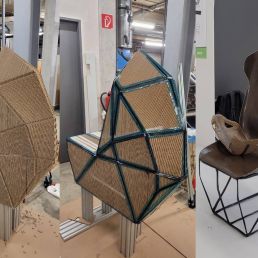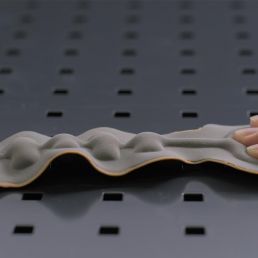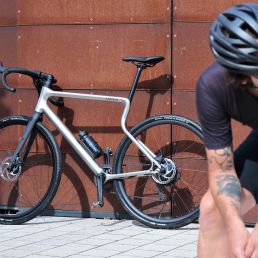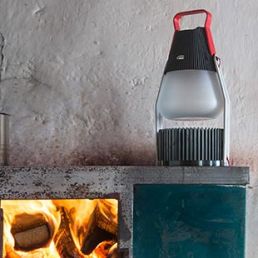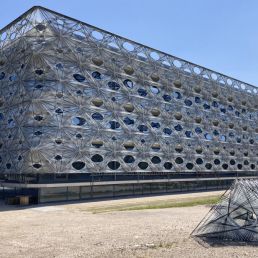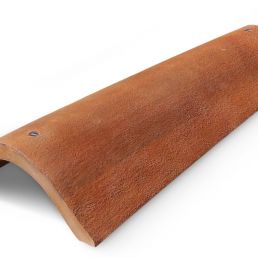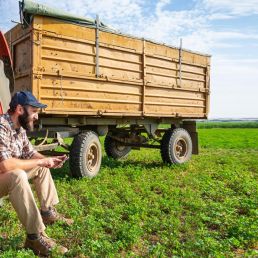
BMW visionary seat concepts
materials application for lower CO2 emissions
28 September 2023
With the visionary seat concepts, BMW Design presents ideas for concrete applications using other innovative materials and production methods that contribute to lower CO2 emissions and increased use of secondary materials, while at the same time establishing a new, high-quality interior aesthetic for the cars of the future.
Infinite Loop & Grown Innovation seat studies
Seat surfaces are a central element in the design of a vehicle interior and are of significant importance when it comes to the customer’s perception of the ambience. The design process therefore considers the look and feel, aesthetic impact and consistently high quality and tries to balance these aspects with resource-saving production and maximum recyclability of the material.
The Infinite Loop seat concept is characterised by the consistent use of recycled material. Textile waste, which is processed into a synthetic yarn, is used to produce the material for the seat surfaces. This manufacturing process uses around 98% less water than when using cotton and reduces CO2 emissions by around 80% compared to the conventional processing of polyester.
The solid backrest elements of the Infinite Loop seat concept can be made from leftover materials from the plastics industry or, as part of a complete circular economy, from the seating foam from end-of-life vehicles. In addition, composite materials made from dust and polystyrene waste can be used for resource-saving production of the seat backrests.
The Grown Innovation seat concept combines synthetic textiles made from 100% recycled material with natural fibres and a new type of biomaterial obtained from bacterial nanocellulose. The biomaterial, which is created in a laboratory process over the course of several weeks, forms the basis for a plastic-free, non-animal textile material with a high-quality surface finish and long service life.
Another component of the surfaces developed for the Grown Innovation seat concept consists of a synthetic textile material produced using a 3D printing process. The additive manufacturing process does not generate any production waste and offers designers almost unlimited freedom when it comes to designing shapes and colours for vehicle interiors.
The upper section of the seat backrest – a possible alternative to the wood surfaces conventionally used in cars – consists of a composite material made from fast-growing plant fibres, which are characterised by a particularly favourable carbon footprint from cultivation to processing, and a protein-based binding agent. The material can be processed efficiently and in a variety of geometries and has a high-quality grain.
image credit: BMW Group
Ecoblaq molecular wood colours
23 March 2024
Ecoblaq is a molecule manipulation method, a natural chemical reaction, making…
Natural fiber reinforced car seat
22 October 2023
The focus of the project "Design for Recycling" is a seat shell that is made…
MotorSkins morphing textiles
19 April 2022
Berlin based start-up MotorSkins designs and produces textiles with embedded…
3D Pioneers Challenge 2022
15 December 2021
The 3D Pioneers Challenge 2022 adresses tech pioneers who pave the way for…
IGNIS – Light from waste heat energy
12 August 2020
The availability of affordable, independent and, above all, clean electrical…
Brake disc with reduced fine dust
21 April 2021
Fine dust endangers our health. One of the main sources is traffic, especially…
Texoversum
15 July 2023
With the "Texoversum", Reutlingen University has put into operation a training…
Invisible Terracotta Solar Rooftile
10 May 2023
The family-run business Dyaqua has developed a technology to integrate a…
Xarvio – Digital Farming
8 January 2021
BASF Digital Farming GmbH has received the renowned Crop Science Award for the…

